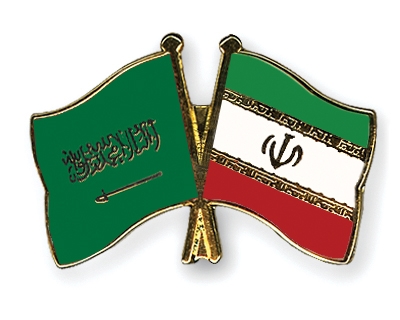 Amid growing Saudi concerns about the shifting Middle East balance of power in favour of Iran, Pakistan is walking the tight rope between Riyadh, a close ally, and Tehran, an important neighbour.
Amid growing Saudi concerns about the shifting Middle East balance of power in favour of Iran, Pakistan is walking the tight rope between Riyadh, a close ally, and Tehran, an important neighbour.
Last week, the Pakistan army chief, General Raheel Sharif was a special guest at the largest military exercises ever conducted by Saudi Arabia that were widely seen as a show of political resolve against Iran.
This week, the Pakistan Prime Minister Nawaz Sharif is heading to Tehran to reassure Iran that Islamabad will not act as Saudi Arabia’s proxy in the Syrian civil war.
In the Middle East, Syria has become one of the major theatres for Saudi-Iran rivalry for regional primacy. Tehran is supporting the regime of Bashar al Assad while Saudis are backing Sunni militant groups trying to oust him from Damascus.
In the last few months, there has been mounting speculation that Saudi Arabia is pressing the Pakistan army to recruit and train volunteers to fight against the Syrian regime. Riyadh’s recent gift of $1.5 billion to Pakistan was seen as a reward for Islamabad’s willingness to provide military teeth to the Saudi strategy in Syria.
It is no secret that Nawaz Sharif owes big to Saudi Arabia. When Gen Pervez Musharraf ousted Sharif from power and locked him up, it was Riyadh that bailed him out and gave him shelter in Jeddah. The Saudi financial carrot followed a series of high level visits by the Saudi Crown Prince and foreign minister to Pakistan.
The House of Saud was deeply distrustful of Asif Ali Zardari who was seen as close to Iran. One of the last political acts of Zardari to was to travel to the Iran border in March 2013 and inaugurate the construction of a natural gas pipeline between the two nations.
One of the first acts of Sharif since he took charge last year was to signal that Pakistan was no longer interested in the project. It was widely assumed that Sharif was acting under American and Saudi pressure. Since then Sharif has backtracked a bit and said Islamabad would not abandon the project. During his visit to Iran, Tehran is likely to demand clear answers from Sharif.
There have also been growing military tensions on the Pak-Iran border as Sunni militant groups based in Pakistan target Iranian security forces. The sectarian dimension to the Saudi-Iran rivalry, in addition, feeds the tensions between the Shia and the Sunni in Pakistan. The last few years have seen frequent attacks on the Shia minority in Pakistan by Sunni extremists.
As it gets drawn deep into the Saudi-Iran rivalry, Pakistan is putting a brave face. Some Pakistani officials have claimed a potential role for Islamabad in mediating the disputes between Riyadh and Tehran.
Few are ready to take that claim seriously. And there is no question that Pakistan’s diplomatic tradition of managing contradictions by running with the hare and hunting with the hound now faces a big test.









Running with the hare and hunting with the hound may result in “na khuda hi mila na visale sanam”…
Hard fact is that a Sunni Pakistan wants to side with Sunni Saudi Arabia to support a Sunni uprising in Syria and while doing so it may pocket some petro dollars and create a non-state army to fight in Syria but will eventually end up fighting against Indians in Kashmir. how smart – “ek teer se do shikaar”.
What Pakistan refuses to believe that this army when not fighting syrians will actually become another Taliban. Nawaz is actually going to Tehran to assess the Iranian mood and perhaps use Saudi money to invest in gas pipeline to buy temporary peace with Iran. Pakistan is failing to understand that unless US & Russia want, nothing will happen in Syria. US has already cut its military expenditure, an indication that its not going to allow any military action in the area.
Iran Pakistan were close before the so called Islamic revolution in Iran. Relations became more strained even though Pakistan did try to improve relations for e.g. giving stingers and silk worm missles to Iran during the Iran Iraq war, however the urge of the Iranian leadership to export their revolution led to a revolt in Gilgit Baltistan in 1988 which till today is smoldering due to this interference. Our relations with the Gulf have never been Iran specific our army were stationed to counter any threat be it Israel, Iraq or Iran.